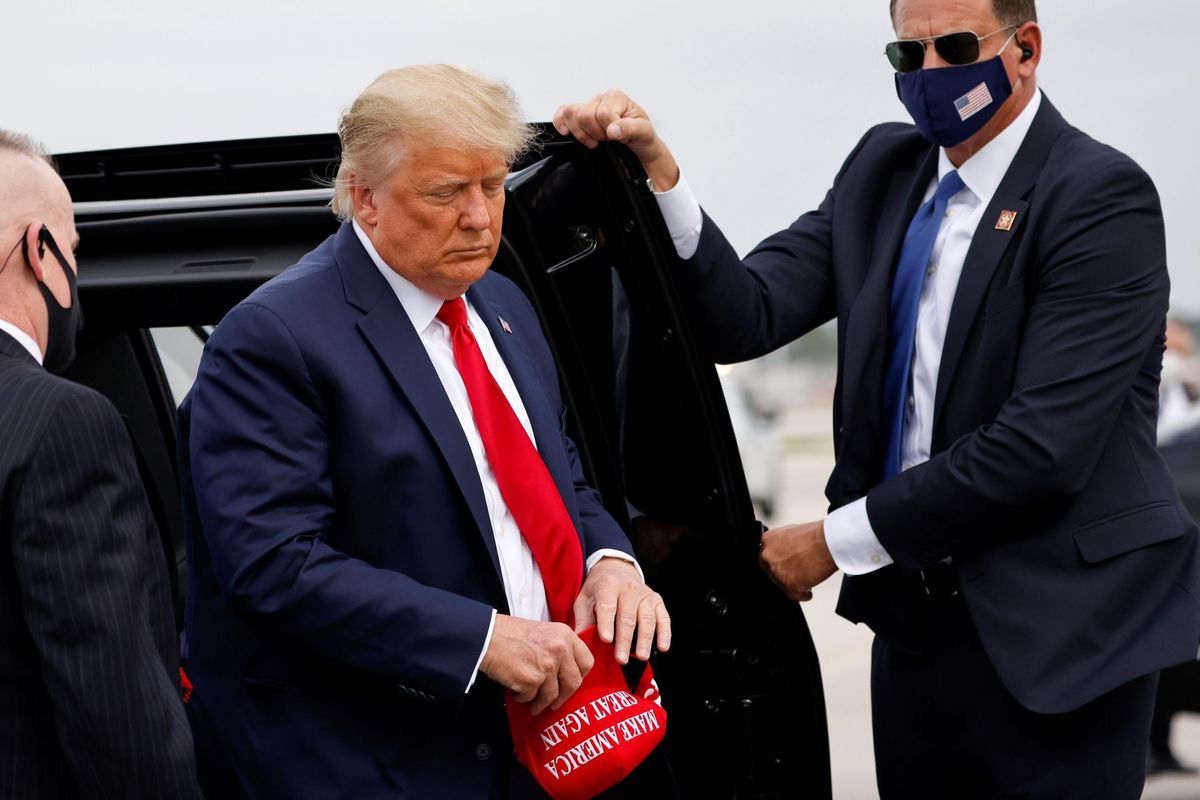Trump’s refusal to accept the election results, explained

A few minutes every morning is all you need.
Stay up to date on the world's Headlines and Human Stories. It's fun, it's factual, it's fluff-free.
Well before the presidential election was called on November 7, President Trump and his campaign were sowing doubt about the integrity of the election.
President Donald Trump has had a busy week claiming that President-elect Joe Biden’s victory is due to voter fraud, with the president’s campaign and other Republicans issuing lawsuits in five states. So far, none of these lawsuits have produced anything of substance.
Well before the presidential election was called on November 7, President Trump and his campaign were sowing doubt about the integrity of the election. In the days since, they have continued to claim that widespread voter fraud took place. Many critics believe this is dangerous rhetoric that damages the office of the presidency and America in general.
Trump’s claims
After The Associated Press called the election results in favor of former Vice President Joe Biden on Saturday morning, Trump responded by tweeting, “I WON THE ELECTION, GOT 71,000,000 LEGAL VOTES.” Later, Trump added on his Twitter, “Tens of thousands of votes were illegally received after 8 P.M. on Tuesday, Election Day, totally and easily changing the results in Pennsylvania and certain other razor thin states. As a separate matter, hundreds of thousands of Votes were illegally not allowed to be OBSERVED…”
Though state election laws vary, there is no election law that states that votes should not be counted after Election Day.
The GOP and the Trump administration, with help from members of Trump’s campaign staff, had previously geared up for the possibility of a Trump loss by finding ways of challenging ballots cast after Election Day. They challenged laws in swing states like Pennsylvania, North Carolina and Wisconsin before Election Day, bringing their cases all the way to the Supreme Court. The campaign asked the courts to limit the days states could count mail-in and absentee ballots, aware that these methods of voting often favor Democrats.
Following the same strategy, the Trump campaign, aided by GOP groups throughout the country, filed lawsuits disputing small issues in individual states, mostly in order to delay ballot counting.
In Pennsylvania, attorneys for the Trump campaign asked a judge to halt ballot counting because Republican observers were barred from the polling station. After scrutiny from Judge Paul S. Diamond, the lawyers admitted there were “a nonzero number of people in the room.”
Lawyers in Philadelphia also stressed that Republican observers were consistently in the counting rooms and that only one had been removed and that removal was because they would not follow coronavirus protocols.
GOP media sources continued tossing accusations, claiming voter fraud inside polling stations where volunteers were counting ballots. Trump himself encouraged his supporters to “go to the polls and watch very carefully” following the election. Heeding his advice, hundreds of supporters swarmed polling stations in hopes of uncovering instances of voter fraud.
In a video released by Project Veritas, a conservative activist group, a postal worker whose face was blurred and name was kept hidden at the time claimed that late ballots were collected in separate bins and later counted after Election Day. Erie postmaster Robert Weisenbach responded to the claims, stating, “The allegations made against me and the Erie Post Office are 100% false made by an employee that was recently disciplined multiple times.” Later, Richard Hopkins, the previously anonymous postal worker, recanted his accusations.
On Monday, November 9, Attorney General William Barr released a memo allowing the Department of Justice to investigate voting irregularities, overriding the State Department’s election crimes branch. Barr’s memo notes the importance of a thorough investigation of voting irregularities, but also states that it is “imperative that Department personnel exercise appropriate caution and maintain the Department’s absolute commitment to fairness, neutrality and non-partisanship.” In response, Richard Pilger, the head of the election crimes branch, stepped down in protest.
Trump critics dispute voting fraud claim
Many politicians and political analysts believe that these accusations will lead to distrust in the American democratic system. During the campaign, Trump routinely claimed that voter fraud and election malfeasance were running rampant during the entirety of the election. Critics now worry that Trump’s rhetoric further damages the reputation of the office of the president.
In response to the actions of the Trump administration, President-elect Biden said “How can I say this tactfully? I think it will not help the president’s legacy.”
Others had harsher words. Senate Minority Leader Charles E. Schumer expressed his concerns about the way in which Republicans have repeated Trump’s accusations without offering proof. In a speech on the Senate floor, Schumer stated, “His [Trump’s] legal team is filing scores of frivolous, unsubstantiated lawsuits. He is undermining faith in our elections and poisoning our democracy during one of the most delicate moments in our constitutional system: something we treasure, the peaceful transfer of power.”
Despite the litigation, lawsuits and dangerous rhetoric from Trump and his allies, Biden’s top attorney Bob Bauer expresses confidence that Biden will be the next president.
“There’s no question,” Bauer explains, “They can’t overturn the outcome of this election. Joe Biden will be inaugurated on January 20, 2021.”
Have a tip or story? Get in touch with our reporters at tips@themilsource.com




Comments ()